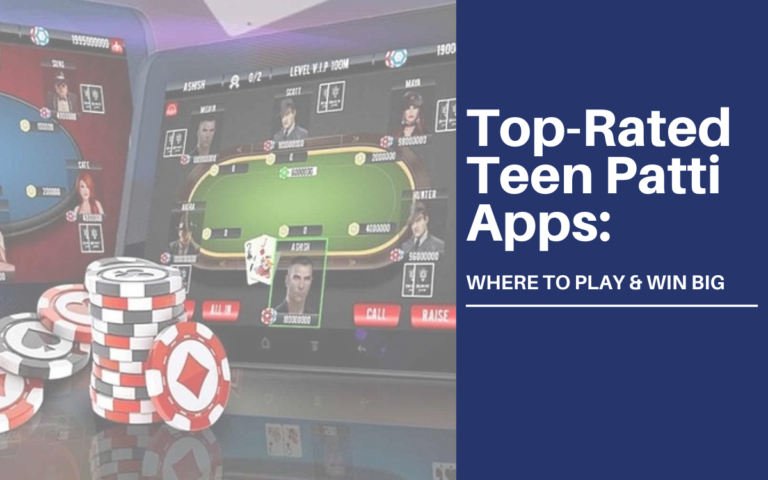Building a Poker Career in 2025: Is It a Viable Full-Time Path
In 2025, the dream of building a successful poker career is alive and evolving. With the growth of online platforms, the mainstream acceptance of the game, the rise of content creators who make poker a part of digital entertainment, and the increasing popularity of Rummy games, many are asking: Can poker be a viable full-time career today? The answer is both yes and no—it depends on several key factors, including skill, adaptability, financial discipline, and understanding the modern poker landscape.

The Modern Poker Landscape: A Global Stage
Poker has grown beyond smoky backrooms and Las Vegas card tables. In 2025, poker is a global, tech-driven industry that blends traditional live tournaments with online events, streaming content, and even blockchain-backed gaming ecosystems—offering new pathways for building a sustainable poker career. Major tournaments such as the World Series of Poker (WSOP), European Poker Tour (EPT), and Asian Poker Tour (APT) are more accessible than ever, often offering online qualifiers that reduce the cost of entry for aspiring professionals.
Moreover, platforms like GGPoker, PokerStars, and partypoker have integrated advanced features such as real-time stats, hand replays, and security algorithms, making the online experience more competitive and transparent. With mobile compatibility and AI-assisted tools, poker has become a game of strategy and study, appealing to Gen Z and millennials alike—much like platforms such as Teen Patti Stars.
Why People Consider Poker as a Full-Time Career
There are several compelling reasons why individuals choose to pursue poker professionally in 2025:
- Freedom and Flexibility – Poker doesn’t follow a 9-to-5 schedule. Players can choose when and where they work, especially with online games available around the clock.
- Potential for High Earnings – Top professionals can earn millions in tournament winnings, endorsements, and even streaming revenue, making a poker career highly lucrative for the best in the game. While these cases are exceptional, mid-stakes grinders can also earn respectable annual incomes.
- Merit-Based Progression – Unlike traditional jobs where politics can interfere, poker rewards skill, discipline, and constant improvement. Results are often more objective.
- Integration With Content Creation – Many full-time poker players augment their income through Twitch, YouTube, or poker coaching, merging passion with entrepreneurship.
Challenges of Going Pro in 2025
Despite the appeal, poker as a full-time career is not without its hurdles.
1. Variance and Bankroll Management
Poker involves a high degree of short-term variance. Even skilled players can endure extended losing streaks due to bad luck. This makes bankroll management a crucial skill. Professionals need to maintain strict discipline, typically keeping 50 to 100 buy-ins for the stakes they play to survive inevitable downswings.
2. Mental and Emotional Stress
The psychological toll of poker is significant. Players must deal with frustration, tilt, and isolation. While support groups and performance coaches are more common now, the mental demands of a poker career are not to be underestimated.
3. Increased Competition
Poker is no longer a game dominated by amateurs. Training tools like GTO solvers (Game Theory Optimal software), databases, and learning platforms like Run It Once or Upswing Poker have raised the bar. Full-time players must invest time and money in studying the game regularly, a commitment that’s also gaining traction in the conversation around Gen Z and poker.
4. Legality and Tax Implications
Poker laws vary by country. In 2025, while many regions have embraced online poker, others have imposed strict regulations or taxes that can eat into profits and affect the viability of a poker career. Understanding legal obligations and having proper accounting is part of the job.
Skillsets Needed to Succeed in 2025
Becoming a professional poker player in 2025 requires a diverse skillset:
- Strategic Thinking – A strong grasp of GTO principles and exploitative play is increasingly seen among emerging talent, including a rising number of women in poker.
- Data Analysis – Using HUDs (Heads-Up Displays), tracking tools, and hand reviews to identify patterns and weaknesses.
- Emotional Intelligence – Managing tilt, reading opponents, and maintaining composure under pressure.
- Content Creation or Coaching – Many full-time players diversify their poker career by building a personal brand, streaming, or offering coaching.
- Discipline and Routine – Treating poker like a business, with structured schedules, consistent reviews, and financial tracking.

A Day in the Life of a Poker Pro in 2025
To illustrate, let’s look at a typical routine for an online Indian poker pro player in 2025:
- 9:00 AM – Morning workout and meditation to stay mentally sharp.
- 10:00 AM – Hand review and study session using GTO solver tools.
- 12:00 PM – Break and meal.
- 1:00 PM to 7:00 PM – Multi-tabling online tournaments or cash games.
- 7:30 PM – Review key hands, watch a training video, or take notes.
- 8:30 PM – Engage with a poker community or stream for followers.
- 10:00 PM – Unwind and prepare for the next day.
This kind of structured, intentional approach is what defines a serious poker career and separates professionals from hobbyists.
Financial Viability: How Much Can You Make
While top pros earn millions, the more typical full-time grinder at mid-stakes ($2/$5 cash or $50–$200 tournaments) might make between $40,000 to $120,000 annually—before taxes, expenses, or variance. Income varies based on game selection, volume, location (cost of living), and additional income streams like affiliate partnerships or YouTube ad revenue.
It’s also worth noting that successful players diversify. Many invest winnings in stocks, crypto, or real estate to create long-term stability, reducing reliance on their poker career alone.
Tools That Make Poker Careers Viable in 2025
Tech has made the path to professionalism more manageable:
- Poker Tracking Software (PokerTracker, Holdem Manager)
- GTO Solvers (PioSOLVER, GTO+)
- Bankroll Apps (PokerBankrollTracker, BRM)
- Study Communities (Discord poker groups, Reddit’s r/poker, coaching forums)
- Streaming Platforms (Twitch, Kick, YouTube Live)
Combining gameplay with content or community engagement helps build a sustainable presence beyond the tables.
Alternative Poker Careers
If full-time play isn’t the right fit, other poker-related careers have emerged:
- Poker Content Creator – Streaming, tutorials, reviews, entertainment.
- Poker Coach – Teaching strategy to new or intermediate players can be a valuable extension of a poker career.
- Poker Journalist/Writer – Covering events, profiles, or strategy blogs.
- Tournament Director or Commentator – Working live events in managerial or media roles.
- Game Developer – Designing poker apps and AI training tools.
These roles often offer more stability while keeping professionals connected to the game they love, especially as the landscape of Poker in 2025 continues to evolve.
Final Verdict: Is Poker a Viable Full-Time Path in 2025
Yes, but only for those who treat it like a profession, not a passion project. Success in a poker career today requires more than card skills—it demands mental discipline, continuous learning, strategic content diversification, and smart money management. For those who embrace the grind and remain adaptable, poker can still be a lucrative and fulfilling career.
However, those expecting instant riches or a life of glamour will likely be disappointed. As in any entrepreneurial venture, poker rewards those who prepare, persevere, and evolve with the times. In 2025, it’s not just about being a good player—it’s about being a well-rounded poker professional.







